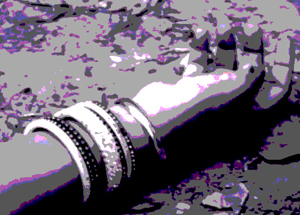
Bruce Hill
MELBOURNE: The head of a Fiji women's rights group is sceptical about reports in the New Zealand media speculating that the death of an Indo-Fijian woman in Auckland may have been an honour killing, Radio Australia reports.
28-year-old Ranjeeta Sharma was found burned to death at the side of a road, and he husband fled to Fiji with their four-year-old son.
He has been located by Fiji police.
Media reports have speculated about whether the death might be termed an honour killing, and a support group for women from migrant backgrounds has claimed that honour killings have happened in New Zealand.
But Shamima Ali, director of the Fiji Women's Crisis Centre, says she has not heard of any actual honour killings among the Indo-Fijian community.
Presenter: Bruce Hill
Speaker: Shamima Ali, director of the Fiji Women's Crisis Centre
Full text
* The NZ media's own Fiji 'honour killing'
By Dev Nadkarni
OPINION: Following last week’s alleged killing of Indo-Fijian Ranjeeta
Singh by burning on a remote road in the Waikato, there has been wild
speculation in the New Zealand news media about the incident being an
honour killing. [Read more]
- Radio Australia/Pacific Media Watch
Full text of Bruce Hill's interview with Shamima Ali:
ALI: No, not that I know of but there are honour beatings, we could term honour beatings when people, when young women don't adhere to what their parents want, what the community they belong to want and so on, particularly in terms of falling in love with someone outside of that community or someone undesirable perceived by the parents. So often girls are brought back and beaten quite badly, sometimes locked up and forced to marry other people. So that has occurred and continues to occur in Fiji. Also when people, men allege that their wives are having an affair and so on, or when women leave their husbands for maybe somebody else or for some other reason, and that is also seen as not behaving like a women and so on, and not the wife. So therefore women have been killed around those circumstances. But as far as honour killing, strictly honour killing has happened in other communities, particularly Muslim communities in Fiji, I haven't heard of one.
HILL: This has happened back in Pakistan and India, but it hasn't really traditionally happened in Fiji. Why is that do you think?
ALI: Because we are a migrant community there in the Indo-Fijian community in Fiji, and because it's so multi-racial and multicultural, though the restrictions are there, there are other communities that sort of balance things out or dilute the extreme restrictions that are placed upon communities, majority communities like what happens in Muslim countries and so on.
HILL: If there are a series of culturally based expectations on female behaviour, but you're living in a society where those norms don't apply, this creates a real dichotomy, that women can feel they're living in two completely separate cultures with different sets of expectations at once?
ALI: Yes, yes, definitely, that does happen. But in Fiji that's what I'm saying, that in Fiji it's many women - particularly from the Indo-Fijian community - know what is expected of them, and they would behave in that way. But over the years there have been rebellions, people who have rebelled and gone their own way, and sometimes ostracised by the family, but usually the families do take them back.
HILL: If a woman is in this position, if she's in an abusive marriage, what's your advice to them about going to the authorities for assistance?
ALI: Well, I would say to them, and we say that to the women here and around the Pacific is get help, you must tell someone as soon as possible, don't leave it for too long, get help as soon as possible, and help is more and more nowadays help is available, and those support systems might be weak but they're definitely is help available. And once you do decide to report then the women must ensure a place of safety, not to keep going back to where the abuser is, or going back into the family home, because that is when a woman decides to do something about it and perhaps make noises about leaving, that is when we believe she's at highest risk. And also the shelters and the crisis centres and so on often ensure that women are in a place of safety when she has reached that point.
HILL: Well, I've seen your crisis centre in Suva, it's got very strong bars on the windows, it's got a really strong security entrance, metal bars all over the place, it's kind of a fortress. Do you get men turning up banging on it, demanding that you return their women to them?
ALI: Oh definitely, we're always at risk and we do recognise the risk, the workers at the crisis centre, being followed and therefore we always work as a team. Men have turned up there abusive, violent, threatening court and so on, but over the years as the centres get more credibility and sort of some grudging respect within the community, they have stopped doing that, in fact many men have come and looked for their wives, but first they come and look and actually some of them are even giving in to couple counselling so as to stop the abusive behaviour.



